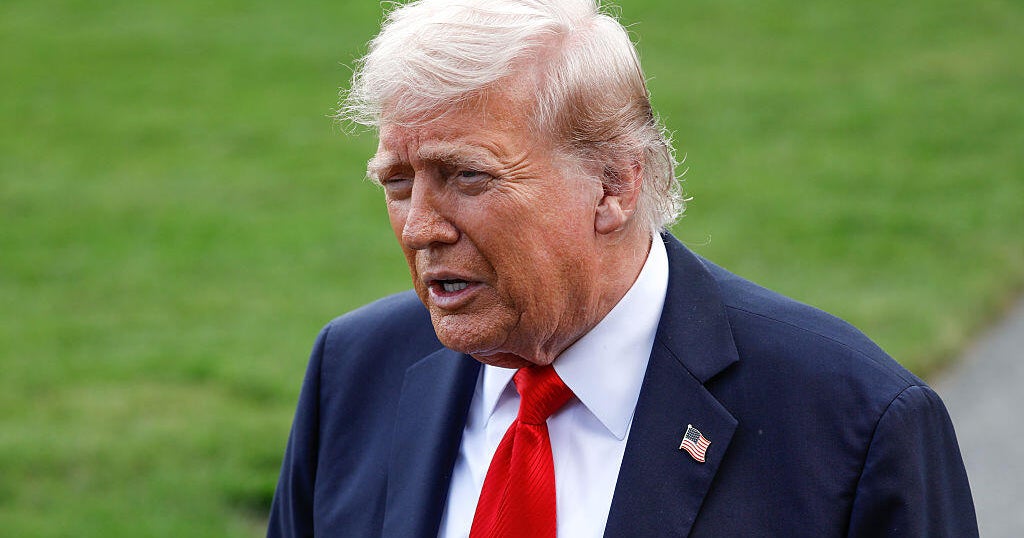A recent ruling by a federal judge highlights growing tensions surrounding the Trump administration’s immigration policies, particularly regarding deportations of vulnerable migrants. U.S. District Court Judge Tanya Chutkan accused the administration of sidestepping legal obligations to protect those fleeing persecution after it deported a group of African migrants to Ghana. Amid concerns for their safety, Judge Chutkan is pushing the government to clarify its actions to prevent further deportations to countries where these migrants may face serious threats to their well-being.
| Article Subheadings |
|---|
| 1) Legal Obligations Surrounding Deportations |
| 2) Conditions of Deportation and Detention |
| 3) Court Proceedings and Responses |
| 4) International Diplomacy and Agreements |
| 5) Implications for Future Deportations |
Legal Obligations Surrounding Deportations
The deportations of African migrants have raised significant questions regarding U.S. legal obligations under international law, particularly the United Nations Convention Against Torture. This legal framework, along with specific provisions of U.S. immigration law—particularly those pertaining to withholding of removal—prohibits the deportation of individuals to countries where they may face persecution or torture. Officials are now questioning the legality of the Trump administration’s actions in this context, suggesting that the administration is circumventing these mandated protections for vulnerable populations.
Conditions of Deportation and Detention
Reports have emerged stating that the deported individuals were held in poor conditions upon their arrival in Ghana. Allegations from attorneys suggest that the migrants were detained in a facility characterized by “squalid conditions,” which included being surrounded by armed military guards in an open-air detention setting. Such conditions have raised humanitarian concerns and cast a shadow over the legality of their treatment under international law, as well as the adequacy of protections historically afforded to asylum seekers and those fleeing violence.
Court Proceedings and Responses
During a recent court hearing, Judge Tanya Chutkan expressed her frustration with the Justice Department’s lack of compliance regarding the situation. Chutkan ordered the U.S. government to provide an immediate explanation of the measures being taken to prevent further deportations. The legal representatives for the deportees argued that four individuals had already been informed about a return to their native countries, including some who had previously been granted protections against such actions due to fears of persecution. Their situation underscores the complexity of immigration law and the necessity for robust judicial oversight in ensuring that legal protections are honored.
International Diplomacy and Agreements
The deportations are part of a broader strategy by the Trump administration to achieve cooperation from various countries to accept non-native deportees. Ghana is just one of several nations that have received migrants under these arrangements. The government’s approach has raised ethical questions about the extent to which the U.S. is willing to manipulate international agreements for its immigration enforcement purposes. Ghanaian officials have confirmed their receipt of these deportees, raising suspicions about the legality and morality of repatriating individuals to conditions they left to escape.
Implications for Future Deportations
The court’s scrutiny of these deportations may set a precedent for future actions taken by the U.S. government regarding the treatment of asylum seekers and refugees. As the legal arguments unfold, there is potential for significant shifts in how the U.S. approaches these sensitive deportation cases and its relationships with other countries accepting deportees. This scenario illustrates the urgent need for the U.S. to align its deportation practices with its human rights obligations while navigating complex diplomatic relationships.
| No. | Key Points |
|---|---|
| 1 | The Trump administration’s deportation policies are under judicial scrutiny due to legal concerns. |
| 2 | Detained migrants are reportedly living in inadequate and unsafe conditions. |
| 3 | A federal judge has demanded explanations from the government regarding the deportations. |
| 4 | Ghana’s involvement raises ethical and legal concerns about international agreements. |
| 5 | Potential precedents are being set for how deportations will be handled in the future. |
Summary
The ongoing situation concerning the deportation of African migrants by the Trump administration underscores critical issues surrounding U.S. legal obligations, humanitarian considerations, and international diplomacy. Judge Chutkan’s ruling may pave the way for necessary legal scrutiny that could impact future deportation practices, emphasizing the need for a balance between immigration enforcement and adherence to human rights standards. As the case unfolds, it may reveal broader implications for U.S.-international relations and the treatment of asylum seekers worldwide.
Frequently Asked Questions
Question: What legal obligations does the U.S. have concerning deportations?
The U.S. is bound by international treaties, including the United Nations Convention Against Torture, which prevents the deportation of individuals to countries where they may face persecution or torture. This legal framework is also reinforced by specific provisions in U.S. immigration law.
Question: What are the conditions like for deported migrants in Ghana?
Reports indicate that deported individuals have faced poor living conditions in Ghana, being held in facilities described as “squalid,” and potentially dangerous, which includes the presence of armed military personnel.
Question: How does this situation affect future deportations from the U.S.?
The ongoing court case and its implications could lead to changes in how the U.S. conducts deportations, necessitating stricter adherence to legal and ethical guidelines for treating vulnerable populations seeking asylum or refuge.
